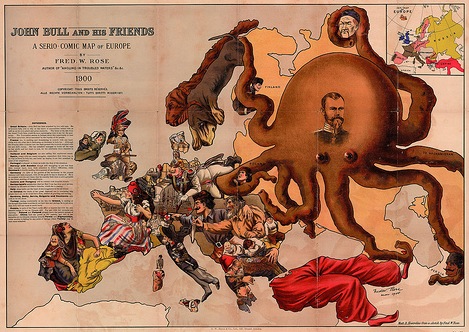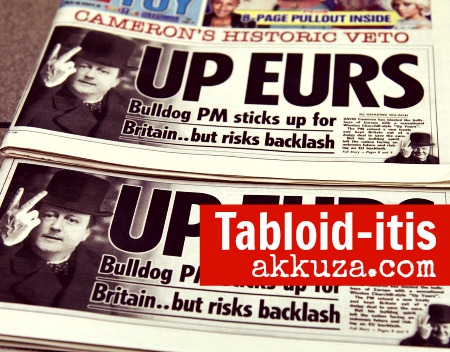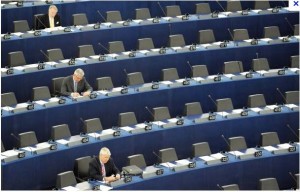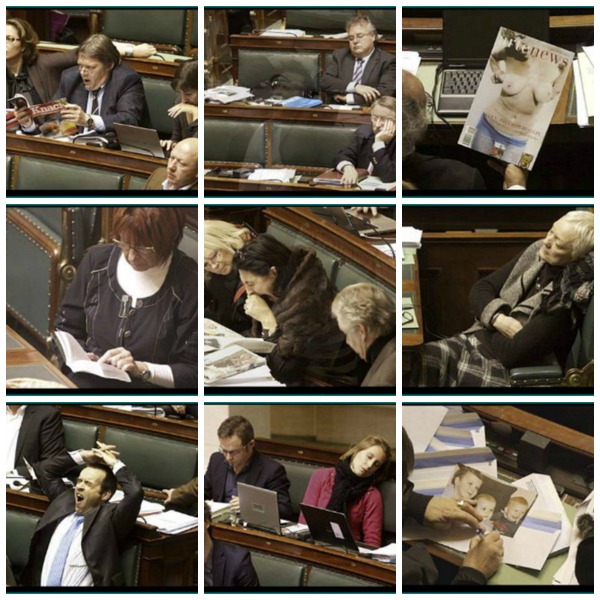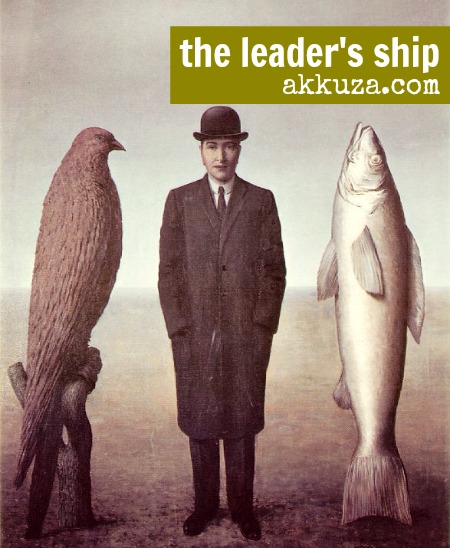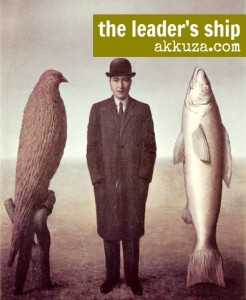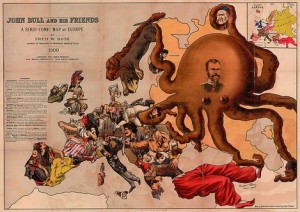
In the beginning was the Rome Treaty. 60 odd years down the line the visions that helped forge together that agreement need some new PR. The first steps of European integration were built on the idea that if the main strategic resources were pooled together (coal, steel, atomic energy) and if a situation of mutually beneficial economic interdependence could be created, then nations that had been at each others’ throats for centuries would have a strong incentive to be at peace. The carrot for such peaceful coexistence was economic prosperity and strength. The European Community was born.
60 years have seen the Community transform to a Union and expand exponentially to include 29 member states. The original driving force of the groups of states has long stopped to be simply of an economic character. The exclusive club of states has not only expanded numerically but also has gone through a bumpy phase of deeper integration that extended into the social and political spheres. In the late nineties one of the standard tensions that was closely observed in the community was that between intergovernmental and federalist forces. The reference was structural, the effect strongly political. The negotiation and the project – whatever shape it took – remained firmly anchored among nation states. The demos was still absent – in the late nineties it was still a matter of sovereign states notwithstanding the European legal order having made huge inroads into the national systems. The “give and take” and the legitimacy question was still firmly rooted at national government level.
Yet, even the early case law that shaped the European Union we now know contained references to the role of the demos in what would eventually be seen as a constitutional construct:
The Community constitutes a new legal order of international law for the benefit of which the states have limited their sovereign rights, albeit within limited fields and the subjects of which comprise not only member states but also their nationals. Independently of the legislation of member states, community law therefore not only imposes obligations on individuals but is also intended to confer upon them rights which become part of their legal heritage. These rights arise not only where they are expressly granted by the treaty, but also by reason of obligations which the treaty imposes in a clearly defined way upon individuals as well as upon the member states and upon the institutions of the community.
—Judgment of the Court of 5 February 1963 (Van Gend en Loos)
Scholars have very often focused on the first part of the above quote – intent on highlighting the dynamics between the member states and the Community/Union. Van Gend, perhaps prophetically, also highlighted the role of “individuals” (still not citizens in the jargon of the court – a concept that would only arrive in the Maastricht Treaty a good 30 years later). Already in 1963, the legal branch of the Community was recognizing the concept of a patrimony of rights being bestowed on individuals – describing it as becoming part of their “legal heritage”. For a long time this legal heritage was strictly tied to what could be termed as “economic rights”. The raison d’être of the Community still being forged around economic prosperity.
In 2003 two of Europe’s foremost philosophers – Jacques Derrida and Jurgen Habermas – co-signed an important article in the Frankfurter Allgemeine Zeitung (31 May 2003). The authors took their inspiration from a series of public demonstrations against the attack on Iraq (by the US backed by a number of EU states). Mass demonstrations were held in the main capitals and Derrida and Habermas stated that “The simultaneity of these overwhelming demonstrations – the largest since the end of the Second World War – may well, in hindsight, go down in history as a sign of the birth of a European public sphere”. In their analysis of this newborn phenomenon, the authors also examine the question of a “European identity”:
Until now, the functional imperatives for the construction of a common market and the Euro-zone have driven reforms. These driving forces are now exhausted. A transformative politics, which would demand that member states not just overcome obstacles for competitiveness but form a common will, must take recourse to the motives and attitudes of the citizens themselves. Majority decisions on highly consequential foreign policies can only expect acceptance assuming the solidarity of outnumbered minorities. But this presupposes a feeling of common political belonging on both sides. The population must so to speak “build up” their national identities and add to them a European dimension. What is already a fairly abstract form of civil solidarity, still confined to members of nation-states, must be extended to include the European citizens of other nations as well. (Jürgen Habermas and Jacques Derrida, ‘February 15, or What Binds Europe Together: Plea for a Common Foreign Policy, Beginning in Core Europe’, in Frankfurter Allgemeine Zeitung, 31 May 2003.)
Fast-forward by ten years, past the Global Economic Crisis that managed to shake Europe at its core foundation. The people are back on the streets. Nationalism is on the rise and is an easy refuge for stirrers within the nation states. The demos in the states are less appreciative of the “add on” to their national dimension and are much the flames of self-preserving nationalism are much easier fanned. When battle lines are drawn – from London to Valletta – the talk is still the same: “Us vs Them”. National identity is not seen as a core of a much wider and wealthier “European Identity Heritage” but rather as an endangered species about to be engulfed by some European monster.
This is where Europeanism becomes an ideology present on multiple fronts. Those that are prepared to take up the baton of Europeanism are those that believe in a common political fate that is beneficial to each and every individual singled out by the court in Van Gend en Loos 50 years ago. The current debate on the sale of citizenship goes straight to the core of this new battlefield. Those who are prepared to defend and strengthen the concept of European citizenship fall on the Europeanist side of the battle lines. There is no space for traditional ideological demarcation lines – it has really become an issue of Europeanist vs non-Europeanist (with the core of the latter being the resurgence of the old nationalistic lines).
Europeanists face a daunting task. Theirs is the duty to convince that the time has come for the European demos to be treated as such. It is not simply a commitment to joining the club and then sitting back and reaping as many benefits without any worry about obligations. It is a commitment to develop a common European identity that can serve as a basis for improvement of the common wealth of all the Union’s citizens.
This raises the question of “European identity”. Only the consciousness of a shared political fate, and the prospect of a common future, can halt outvoted majorities from the obstruction of a majority will. The citizens of one nation must regard the citizens of another nation as fundamentally “one of us”. This desideratum leads to the question that so many skeptics have called attention to: are there historical experiences, traditions, and achievements offering European citizens the consciousness of a political fate that has been shared together, and that can be shaped together? An attractive, indeed an infectious “vision” for a future Europe will not emerge from thin air. At present it can arise only from the disquieting perception of perplexity. But it well can emerge from the difficulties of a situation into which we Europeans have been cast. And it must articulate itself not from out of the wild cacophony of a multi-vocal public sphere. If this theme has so far not even gotten on to the agenda, it is we intellectuals who have failed. (Habermas & Derrida, vide supra)
Derrida and Habermas were writing 10 years ago. The citizenship issue has been the elephant in the room for quite some time now. As has the issue of a defined and empowered “European Demos” beyond the nation (but part of) the nation state. Will this citizenship debate become the “difficult situation into which we Europeans have been cast”? Will it be the first domino that finally obliges the EU to take up a transformative politics that develops a common will empowered by citizens?
It is time for Europeanists to gain momentum. The call has been made and the moment must be grasped.
O Freunde, nicht diese Töne!
Sondern lasst uns angenehmere anstimmen,
und freudenvollere.
Freude!
 Back in 1992, Vaclav Havel was the President of a reborn Czechoslovakia. The fall of the Wall and the crumbling of the Iron Curtain was still fresh in recent memory and Havel’s new republic was making its way towards the ideal of “Western Democracy”. Fukuyama might be standing round the corner proclaiming the end of history but for the Czechoslovak playwright and poet President the future was full of hope. In the summer of 1992, Havel wrote a series of essays published in a book called “Summer Meditations”. In “Beyond the Shock of Freedom” he tries to imagine what Czechoslovakia would be like in the future (ten, fifteen, or twenty years). Though he admits that “life is unfathomable” he does try to dream for a while.
Back in 1992, Vaclav Havel was the President of a reborn Czechoslovakia. The fall of the Wall and the crumbling of the Iron Curtain was still fresh in recent memory and Havel’s new republic was making its way towards the ideal of “Western Democracy”. Fukuyama might be standing round the corner proclaiming the end of history but for the Czechoslovak playwright and poet President the future was full of hope. In the summer of 1992, Havel wrote a series of essays published in a book called “Summer Meditations”. In “Beyond the Shock of Freedom” he tries to imagine what Czechoslovakia would be like in the future (ten, fifteen, or twenty years). Though he admits that “life is unfathomable” he does try to dream for a while.

